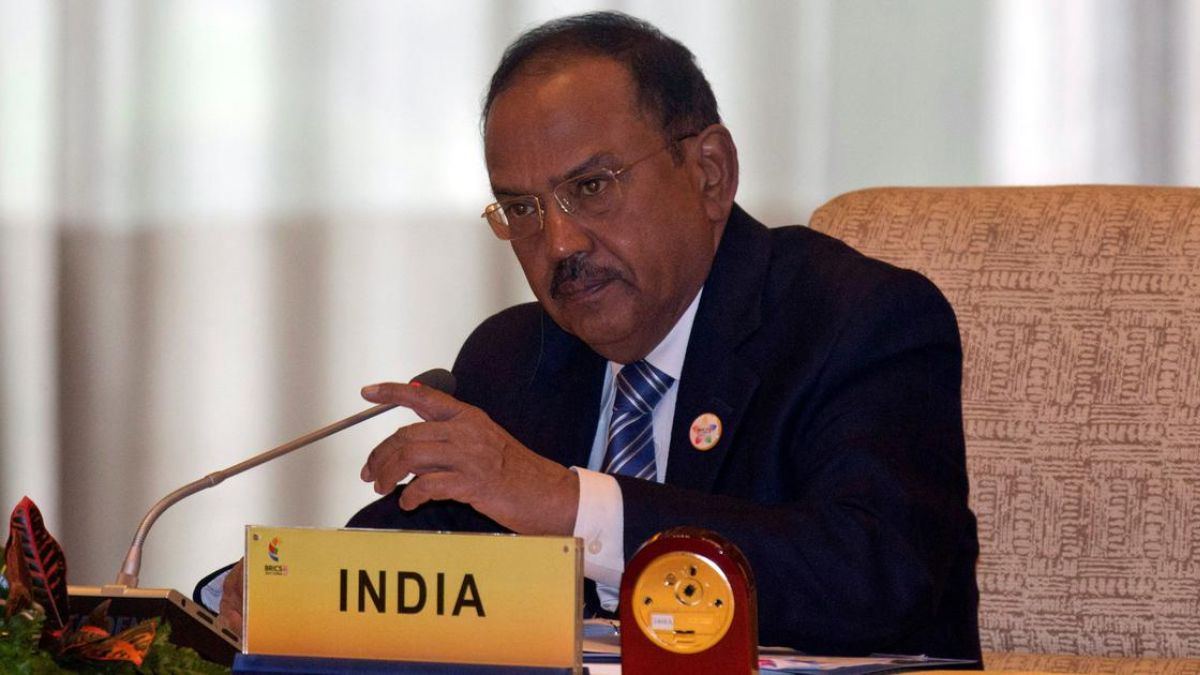Special representatives of India and China are set to hold talks tomorrow (December 18) in Beijing.
The development comes two months after New Delhi and Beijing decided to disengage along the Line of Actual Control (LAC) after being locked in a stand-off at the border for the past four years.
Relations between the two countries hit their nadir after a fierce clash between their troops in the Galwan Valley in June 2020.
But what do we know about the talks tomorrow? What can we expect?
Let’s take a closer look:
What do we know?
National Security Adviser Ajit Doval will meet China’s Foreign Minister Wang Yi in Beijing.
Doval, who is representing India, arrived in Beijing on Tuesday.
“Ajit Doval, National Security Advisor and India’s Special Representative (SR) on the India-China boundary question, will hold the 23rd meeting of the SRs in Beijing on December 18 with his Chinese counterpart Wang Yi, Member of the Political Bureau of the Communist Party of China (CPC) Central Committee and Minister of Foreign Affairs of China,” MEA said on Monday, as per Live Mint.
Wang is also a member of the Chinese Communist Party’s Political Bureau.
This will be the 23rd meeting of Special Representatives for the China-India boundary question, according to Chinese Foreign Ministry spokesperson Lin Jian.
The Special Representatives group was established in 2003.
The idea behind this group is to address any issues over the nearly 4,000-kilometre border between India and China.
There have been 22 such meetings.
As per NDTV, the previous meeting of the Special Representatives occurred in 2019 – the year before the clash in Galwan upended relations between the two nations.
It was held in Delhi.
While success eluded it in resolving the boundary dispute, officials on both sides regard it as a very promising, useful and handy tool in addressing the recurring tensions between the two countries.
As per The Times of India, the special representatives spoke to each other over the telephone in 2020.
Except for trade, relations between the two countries were frozen since April 2020 when the Chinese moved large numbers of troops towards the Line of Actual Control (LAC), sparking one of the longest military standoffs between the two countries.
What can we expect?
Live Mint quoted the Ministry of External Affairs (MEA) as saying that both sides will talk about peace and tranquillity in the border areas as well as try to come up with a “fair, reasonable and mutually acceptable” solution to the border issue.
Doval and Wang previously met in September on the sidelines of a meeting in Russia’s St Petersburg.
China stands ready to work with India to deliver on important common understandings reached between our two leaders, enhance mutual trust and mutual confidence through dialogue and communication, honour our commitments and promote our bilateral relations to go back to the sound and steady growth,” Chinese Foreign Ministry spokesman Lin Jian was quoted as saying by Daily Excelsior.
The Special Representative summit came about as a result of Prime Minister Narendra Modi and Chinese President Xi Jinping meeting in Kazan in October.
Modi and Xi met on the sidelines of the BRICS summit during which they endorsed the agreement on patrolling and disengagement along the LAC in eastern Ladakh.
They instructed the Special Representatives for the boundary mechanism to meet to discuss further steps.
Foreign Secretary Vikram Misri on October 21 said in Delhi that the agreement was finalised following negotiations over the past several weeks and that it would lead to a resolution of the issues that arose in 2020.
Subsequently, the Chinese Foreign Ministry confirmed the agreement on October 22, saying “the two sides have reached resolutions on relevant matters, which China speaks highly of. Going forward, China will work with India to implement these resolutions.”
External Affairs Minister S Jaishankar and his Chinese counterpart Wang Yi met on the sidelines of the G20 summit in Brazil followed by the Working Mechanism for Consultation & Coordination on China -India Border Affairs (WMCC).
“Our relationship had progressed in many areas but was clearly impacted by recent events. We firmly believe that maintaining peace and tranquillity in the border areas is essential for the development of our ties. In the coming days, we will discuss both de-escalation and the effective management of activities in the border areas,” Jaishankar told the Lok Sabha.
With inputs from agencies
)